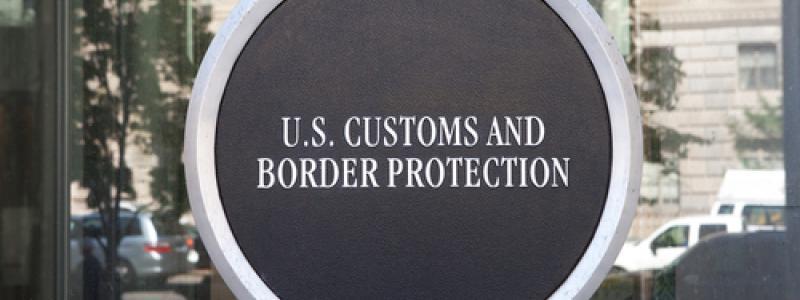US CBP Acknowledges It Doesn’t Have The Authority To Check Data Stored In The Cloud

The United States Customs and Border Protection (CBP) has admitted that they currently do not have the authority to examine any data stored in the cloud when performing phone searches on travelers coming to the country. As indicated in a letter written by the agency to NBC News, it confirmed that while it can search electronic devices at the border without a warrant or the consent of the owners of the devices, they can not touch the data in the cloud.
This clarification from the CBP is in response to questions posed by Democrat Senator Ron Wyden from Oregon, who had express his opinion that the practice was a “troubling” one, and could be in violation of the privacy of travelers who are made to provide their personal passwords and even grant CBP agents access to their social media accounts.
According to the CBP’s letter, its authority centers on border searches of all merchandise coming in or leaving the US, including the data that is physically saved on an electronic device carried by an international traveler. Because data stored in the cloud are essentially information saved in remote servers, they are not covered by the authority of the CBP.
Back in April earlier this year, Wyden and Republican Senator Rand Paul from Kentucky had tried to propose legislation that would require border agents to present probable cause before conducting phone searches or even confiscating any electronic device. Wyden stated at that time that the focus should be on apprehending criminals and terrorists, not wasting time searching through the electronic devices of innocent American citizens.
The letter sent by the CBP is said to be written by Kevin McAleenan, the acting commissioner of the agency. It was further explained in the letter that border agents have the power to only search for content that is stored directly to the device’s memory. Such content encompasses text messages, photos, and even contact information.
However, the CBP’s letter did not mention any facts or figures regarding how many phone searches are being performed at borders. Such statistics were requested by other government agencies, including the Federal Bureau of Investigation (FBI) and the Drug Enforcement Administration (DEA).
Border searches have hugged headlines since the start of the year, when in January an American citizen had claimed that he was forced by border agents to unlock and turn over a mobile device that belonged to his employer, the National Aeronautics and Space Administration’s Jet Propulsion Lab.
Related Blog Articles
- Enjoy Free Data When Purchasing A New Plan From Tello
- Apple Previews A Few Emoji That Will Be Launching Later This Year
- A Basic Guide To Dealing With Robocalls
- DHS Ends Ban On Laptops On All Aircraft Flying From Middle East
- Sprint Opens Twice The Price Store To Troll Verizon
- Survey: Teenagers Mostly Experience Online Hate Via Instagram, Facebook
- Netflix Is Top Moneymaking App During Second Quarter Of 2017
- Introducing The Unlimited WiFi Plan: A Global WiFi Offering From US Mobile
- Australian Company Partners With Apple For First Made For iPhone Hearing Implant
- WhatsApp Now Has 1 Billion Daily Users
Related Blog Posts
- Report: Drug users are using wearable devices during binges
- Spotify allows Android users to reorder playlists; Pandora lets users share tunes to Snapchat Stories
- WhatsApp combats fake news with a new forwarded label
- FCC: Today’s improving mobile networks can impact healthcare costs
- Did Apple Music already overtake Spotify in America?


 Menu
Menu